
meatbusinesspro.com $7.99 THE BEEF, PORK & POULTRY INDUSTRY DIGITAL MAGAZINE Government Announces Support for Dairy, Poultry and Egg Processors USDA Launches Pilot to Help Processors Access High-Value Beef Grading Kick-off for IFFA 2025: Rethinking Meat and Proteins Canadian Beef Producers Stand Behind Negotiators at Bilateral Negotiations CMC, COMECARNE and Meat Institute Sign Joint Statement Nurturing Mental Health in Agriculture February 2024 FCC: INDIGENOUS AG OPPORTUNITIES COULD BOOST GDP BY $1.5 BILLION

2 MEATBUSINESSPRO February 2024 meatbusinesspro.com https://www.yesgroup.ca
FEBRUARYR 2024

5 6 10
Training for 100 Meat Companies to Measure Emissions and Set Climate Targets
FCC: Indigenous Ag Opportunities Could Boost GDP by $1.5 Billion
Government Announces Support for Dairy, Poultry and Egg Processors
12 14
USDA Launches Pilot to Help Processors Access High-Value Beef Grading
16 18 20 21
Governments Helping Food Processors Boost Efficiency
Canadian Beef Producers Stand Behind Negotiators at Bilateral Negotiations
CMC, COMECARNE and Meat Institute Sign Joint Statement
Nurturing Mental Health in Agriculture
Kick-off for IFFA 2025: Rethinking Meat and Proteins
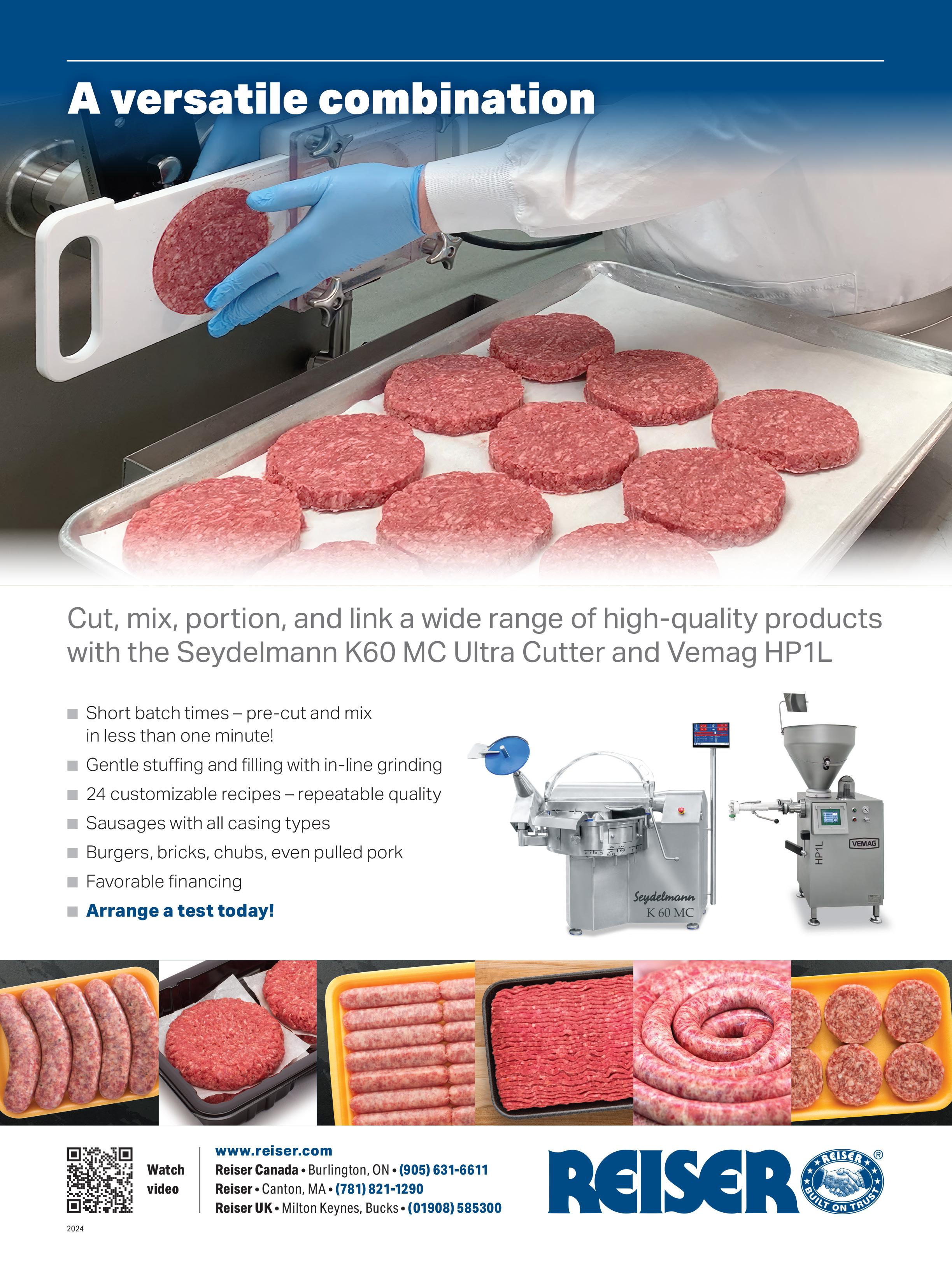
https://www.yesgroup.ca
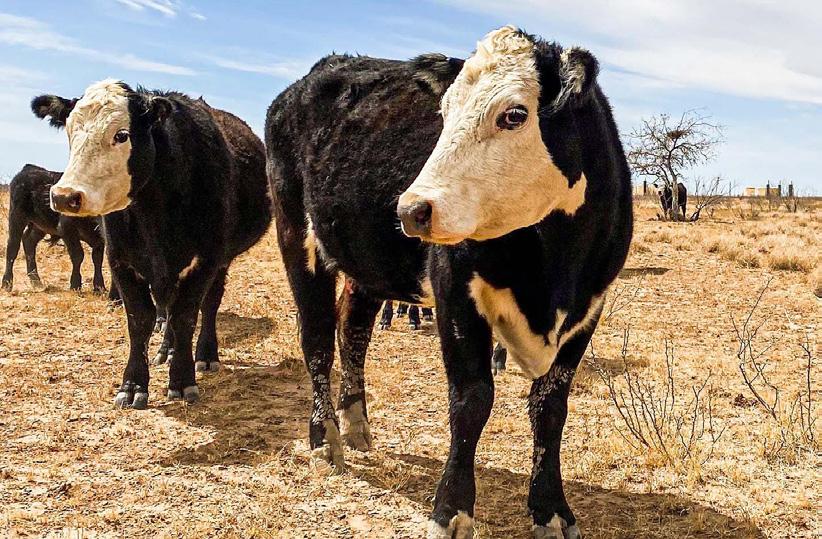

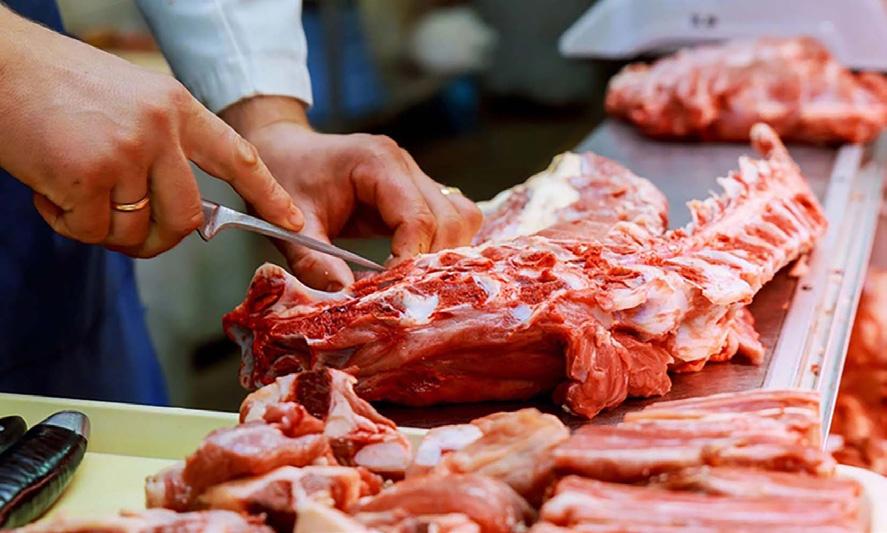
Up to 100 of America’s leading meat companies will have the opportunity to complete climate training programs offered by Supplier Leadership on Climate Transition (Supplier LOCT), following a $65,000 investment by the Meat Institute to kickstart the partnership and enable members to participate in training focused on setting science-based targets for reducing greenhouse gas (GHG) emissions.
“Achieving our ambitious Protein PACT targets requires long-term commitment plus short-term practical action, including to fill technical gaps and build capabilities,” stated Meat Institute President and CEO Julie Anna Potts. “That’s why the Meat Institute is honored to partner with Supplier LOCT and excited to facilitate this critical education opportunity that will help meat companies measure emissions and set emissions targets.”
Supplier LOCT is a collaborative program launched in 2021 to accelerate climate progress across supply chains. The Meat Institute’s investment supports its target for 100% of members to set science-based emissions reduction targets by 2030, subsidizing Supplier LOCT participation for up to 100 Meat Institute members in 2024.
Nicole DelSasso, Director, Supplier LOCT, said, “Accelerating climate action requires collective action, and meat companies can play a critical leadership role in driving emissions reductions. Supplier LOCT welcomes this partnership as an opportunity to continue scaling up collaborative approaches to durable climate solutions.”
Registration is capped to the first 100 registered companies and each company may have up to five staff members participate.
Interested Meat Institute members must register no later than March 15 at https://nami.swoogo.com/supplierloct



5 meatbusinesspro.com February 2024 MEATBUSINESSPRO
February 2024 Volume 25 Number 2 Meat Business Pro is published 12 times a year by We Communications West Inc We Communications West Inc. 106-530 Kenaston Boulevard Winnipeg, MB, Canada R3N 1Z4 Phone: 204.985.9502 Fax: 204.582.9800 Toll Free: 1.800.344.7055 E-mail: publishing@meatbusiness.ca Website: www.meatbusinesspro.com Meat Business Pro subscriptions are available for $28.00/year or $46.00/two years and includes the annual Buyers Guide issue. ©2020 We Communications West Inc. All rights reserved. The contents of this publication may not be reproduced by any means in whole or in part, without prior written consent from the publisher. Printed in Canada. ISSN 1715-6726 CO MMUNICATIONS W EST IN C PUBLISHER Ray Blumenfeld ray@meatbusiness.ca MANAGING EDITOR Scott Taylor publishing@meatbusiness.ca DIGITAL MEDIA EDITOR Cam Patterson cam@meatbusiness.ca CONTRIBUTING WRITERS CREATIVE DIRECTOR Patrick Cairns THE BEEF, PORK & POULTRY INDUSTRY DIGITAL MAGAZINE Isaac Kwarteng, Juliette Nicolaÿ, Jack Roberts, Cam Patterson TRAINING FOR 100 MEAT COMPANIES TO MEASURE EMISSIONS AND SET CLIMATE TARGETS



FCC: INDIGENOUS AG OPPORTUNITIES COULD BOOST GDP BY $1.5 BILLION
By Isaac Kwarteng, Senior Economist, Farm Credit Canada (FCC)
Indigenous people have a long history in agriculture, yet Indigenous participation in agriculture continues to be under-represented. Increasing participation of Indigenous people into agriculture and bridging the gap in farm income between Indigenous and non-Indigenous farm operations represent a $1.5 billion boost in primary agriculture GDP. Renewed efforts towards reducing barriers in access to capital, equipment, and skilled labour, improved agricultural knowledge and farming methods are paths towards boosting Indigenous agriculture production, promoting Indigenous health, increasing food security, and strengthening Canada’s economic well-being and resiliency.
INDIGENOUS POPULATION REMAINS UNDERREPRESENTED IN AGRICULTURE
Data from Statistics Canada suggests that the Indigenous population continues to face large and persistent economic disparities relative to nonIndigenous people in Canada.
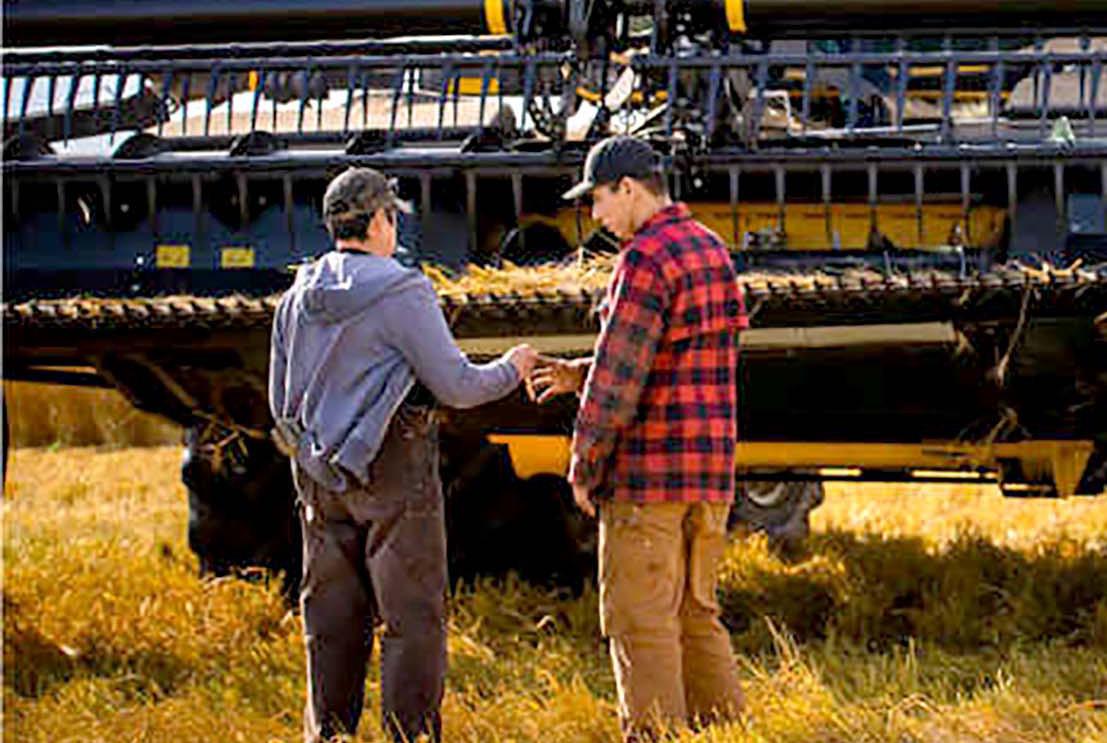

According to the 2021 census, more than 1.8 million people identified as Indigenous, representing 5% of Canada’s total population. Relative to the agriculture sector, there were 5,405 Indigenous farm operators out of 262,045 farm operators (2.1%) in Canada. Although this represents a 5% increase in participation from the previous census, there is still a large possibility to expand participation. Indigenous farm operators live in all provinces and territories, with the four western provinces accounting for over 70% of Indigenous farm operators. Saskatchewan has the highest number of Indigenous operators at 1,165 (21.6%) followed by Alberta with 1,130 (20.9%).

6 MEATBUSINESSPRO February 2024 meatbusinesspro.com
Continued on page 8


Indigenous farming operations are more predominant in oilseeds and grains, vegetables, fruits, and other crops including greenhouse production followed by beef cattle ranching and farming.
Bringing equitable representation of the Indigenous population into agriculture would imply increasing the number of Indigenous farm operators to a similar level as their contribution to the total Canadian population, welcoming an additional 7,631 Indigenous farm operators in the ag economy, a 140% increase.
CLOSING THE GAP BETWEEN INDIGENOUS AND NONINDIGENOUS FARM REVENUE
The impact of historical injustices on Indigenous peoples cannot be underestimated. Ongoing generational effects from the Indian Act, residential school experiences, the 60’s scoop, and other factors contribute to significant and enduring economic differences between Indigenous and non-Indigenous Canadian populations. Lack of access to capital, lower rates of participation of Indigenous people in the labour force, access and level of education attained, and higher unemployment are all major contributing factors that continue to hinder Indigenous economic progress overall, and in the ag economy.
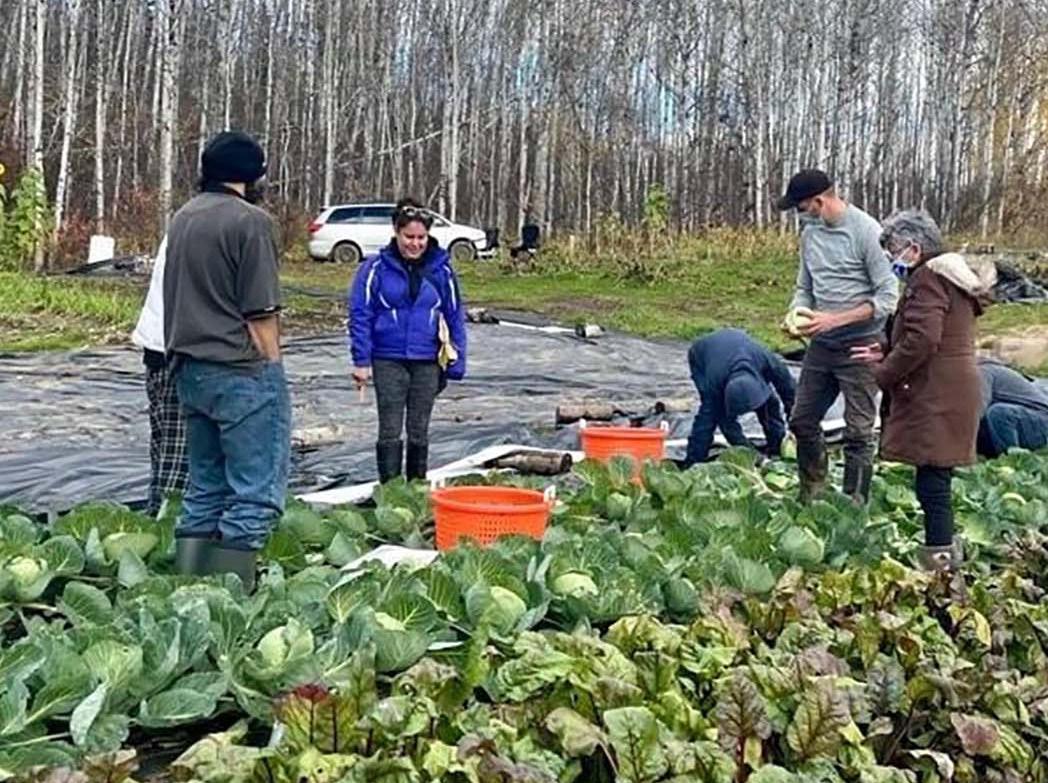
According to Statistics Canada, the median farm operating revenue for Indigenous farm operators in 2020 was $25,960, compared to non-Indigenous operators who earned $73,440. This is a revenue disparity of $47,480, or nearly 65%. The revenue disparity declined slightly between 2015 and 2020, being at $49,900 (adjusted for inflation) in 2015. Revenue inequality has therefore improved slightly over the last five years.
These differences are largely due to underrepresentation of Indigenous farm operators in higher farm revenue brackets. Indigenous operators are highly represented in the lower threshold revenue classes (Figure 1), with 60% of Indigenous operators earning less than $50,000 annually, compared to 43% of non-Indigenous operators. This goes to suggest that although some Indigenous operators own major farming operations, most Indigenous operations are small-scale oriented.

Revenue class of indigenous and non-indigenous farm operators
Closing the revenue gap between Indigenous and non-Indigenous farm operations can be converted to a contribution to the economy measured in terms of GDP. GDP related to Indigenous primary farming operations was estimated to be $351 million, or 1.0% of Canada’s primary agriculture GDP in 2021. Conversely, the GDP contribution of non-Indigenous farm operations was $35.9 billion. This estimated primary agriculture GDP per farm operator was $64,900 for Indigenous and $140,100 for non-indigenous, for a GDP per farm disparity of $75,200. with a steady supply of high-quality products.

and creating approximately 100,000 direct jobs in
8 MEATBUSINESSPRO February 2024 meatbusinesspro.com
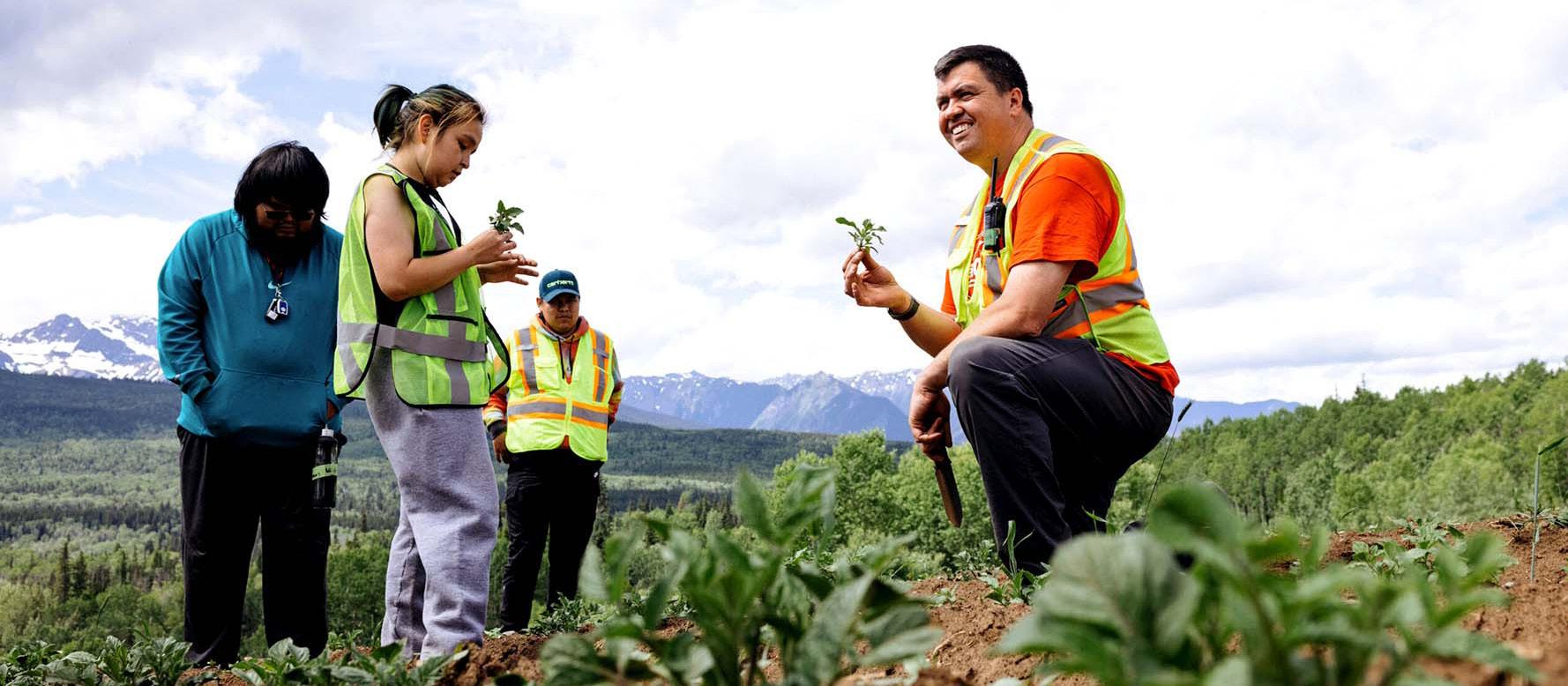
POTENTIAL OF GROWING INDIGENOUS REPRESENTATION AND REVENUE
An equitable representation of Indigenous agriculture implies an increase in the number of operators as well as in revenues generated per farm.
Table 1 summarizes the impact on Indigenous and Canada’s agriculture GDP if we increase Indigenous participation in the sector and revenue generated per farm. Achieving these goals would increase Canadian primary agriculture GDP by $1.5 billion.
Indigenous Agriculture
Potential GDP Growth

AN OPPORTUNITY FOR THE OVERALL ECONOMY
Working towards achieving economic parity for Indigenous people in Canada presents an opportunity to lift the economic resilience of Indigenous populations as well as promoting food security. Increasing Indigenous participation in agriculture is a $1.5 billion opportunity which would more than quadruple Indigenous agriculture GDP and provide an estimated 4.0 % boost in Canada’s primary agriculture GDP. Government programs such as the Indigenous agriculture and food systems initiative and funding programs for Indigenous and northern communities and organizations are laudable, and could be complemented with an innovation plan and collaboration between all stakeholders to address the barriers to increasing Indigenous participation in primary agriculture and agri-food business.
For more information, visit https://www.fcc-fac.ca/

9 meatbusinesspro.com February 2024 MEATBUSINESSPRO
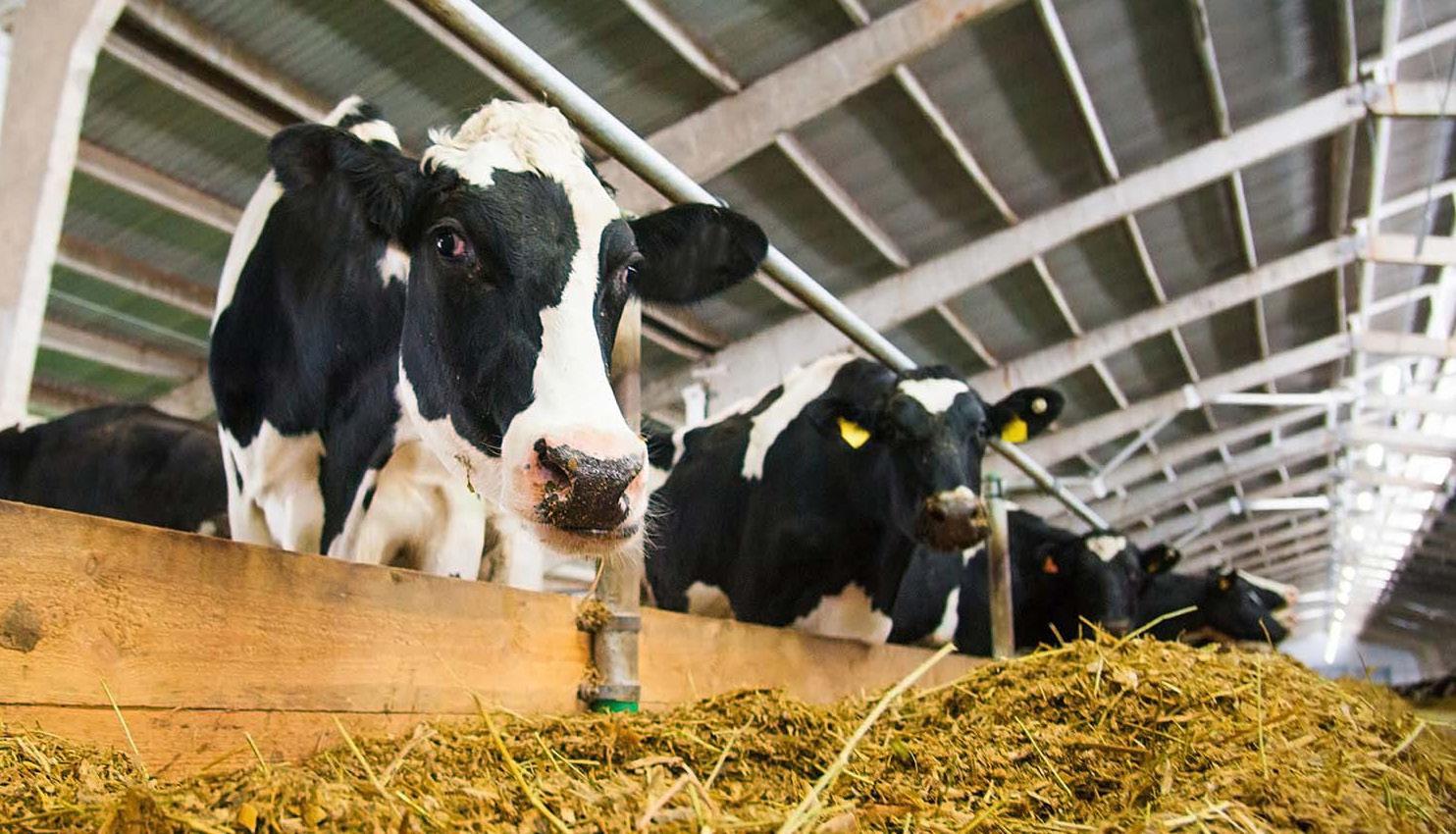

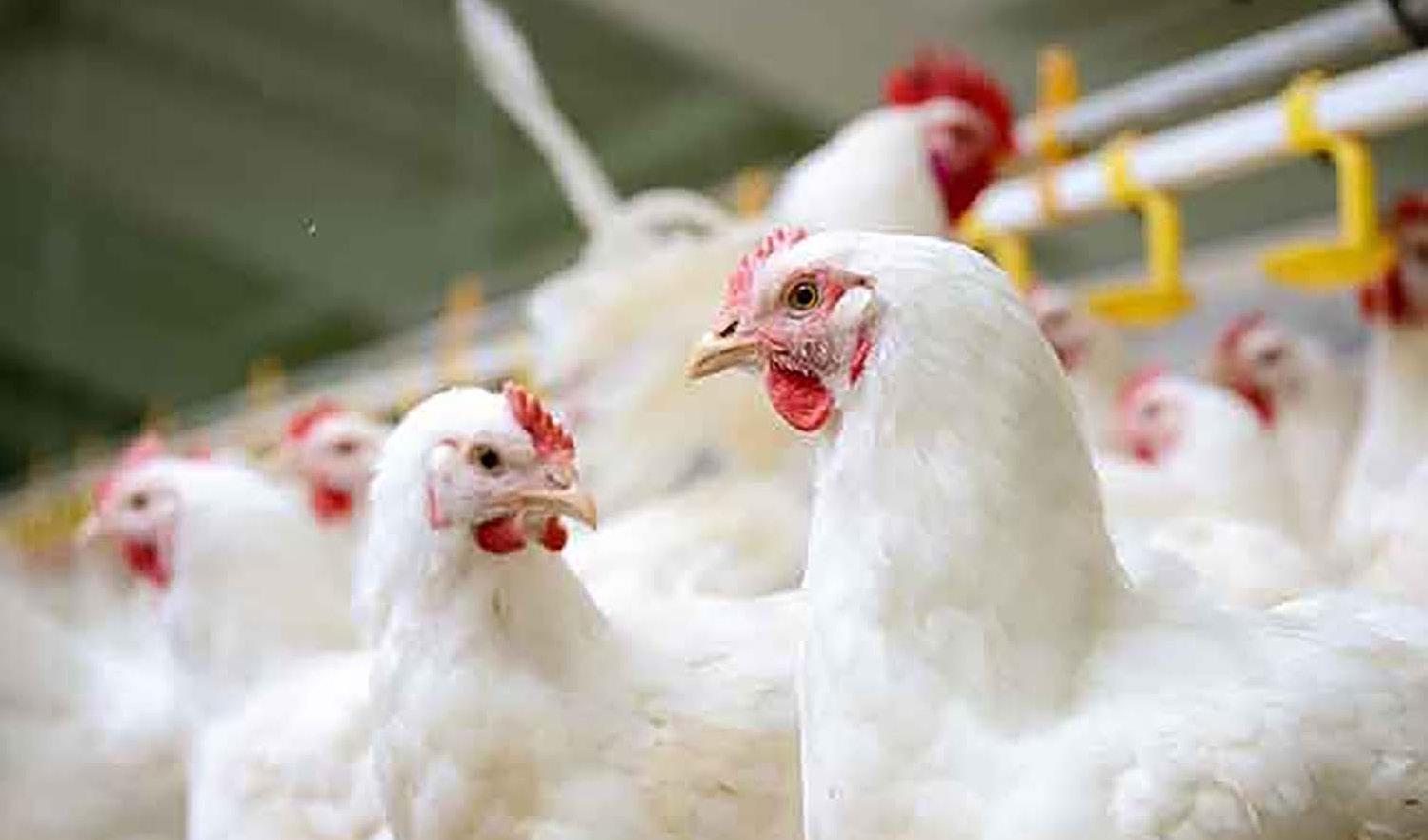
GOVERNMENT ANNOUNCES SUPPORT FOR DAIRY, POULTRY AND EGG PROCESSORS
The Government of Canada has announced an investment of up to $89 million for 49 projects across the country under the Supply Management Processing Investment Fund. This Fund is a key part of the Government of Canada’s commitment to supporting processors in supply-managed sectors in addressing the impacts of recent international trade agreements.
“I will always stand up for Canada’s supply management system and the communities it supports. With this funding, dairy, poultry and egg processors will be able to modernize their operations so they can continue providing Canadian families with high-quality products while supporting small, rural communities across the country,” stated Lawrence MacAulay, Minister of Agriculture and Agri-Food.
Through this funding, dairy, poultry and egg processors are able to purchase and install new automated equipment and technology, allowing them to boost their production capacity and productivity, while also helping them respond to environmental challenges and labour shortages. Project examples include milk pasteurizers, ultrafiltration systems, robotics for packaging systems, and new machines for grading, setting and breaking eggs.


"The
Processing Investment Fund has enabled numerous poultry and egg processors to make important new investments in their facilities. New investments in equipment and technology will facilitate companies’ efforts to increase productivity and efficiency and enable Canadian poultry and egg processors to undertake valuable and leading-edge modernization projects."
The announcement was made in Ingleside, Ontario, at Lactalis Canada’s cheese plant, which is set to receive up to $3,343,000 for new automated cheese processing and packaging equipment. These upgrades will help modernize the production facility, reduce waste and improve productivity.
The Government of Canada will continue to preserve, protect and defend Canada’s supply management system. This system ensures Canadian producers receive fair returns for their labour and investments, brings stability for processors, and provides consumers with a steady supply of high-quality products.
10 MEATBUSINESSPRO February 2024 meatbusinesspro.com
Mark Hubert, President & CEO, Canadian Poultry and Egg Processors Council, said
Supply Management

QUICK FACTS
• In 2022, dairy and poultry processing activities alone contributed $27 billion to Canada’s manufacturing shipments, equivalent to 17 percent of Canada’s total manufactured shipments of food and beverage.
• Launched in 2022, the Supply Management Processing Investment Fund is a 6-year, $397.5-million program aimed at helping processors of supplymanaged commodities adapt to market changes
• The application intake for funding under the Supply Management Processing Investment Fund is open. The program provides non-repayable contributions, supporting up to 50% of eligible project costs for smalland medium-sized enterprises and up to 25% for large organizations of 500 employees or more.
• The Government of Canada has delivered on its commitment to fully and fairly compensate producers and processors who have lost market share under the Canada-European Union Comprehensive Economic and Trade Agreement (CETA), the Comprehensive and Progressive Agreement for Trans-Pacific Partnership (CPTPP) and the Canada-United States-Mexico Agreement (CUSMA). The total compensation will reach over $4.8 billion.


https://www.dhenryandsons.com

11 meatbusinesspro.com February 2024 MEATBUSINESSPRO
VEMAG REPLACEMENT PARTS


USDA LAUNCHES PILOT TO HELP PROCESSORS ACCESS HIGH-VALUE BEEF GRADING
Agriculture Secretary Tom Vilsack recently announced a pilot program to allow more cattle producers and meat processors to access better markets through the U.S. Department of Agriculture’s (USDA) official beef quality grading and certification.
The Remote Grading Pilot for Beef, developed by USDA’s Agricultural Marketing Service (AMS), matches simple technology with robust data management and program oversight to allow a USDA grader to assess beef carcass characteristics and assign the official quality grade from a remote location, reducing costs and location as barriers to participation in voluntary grading services.
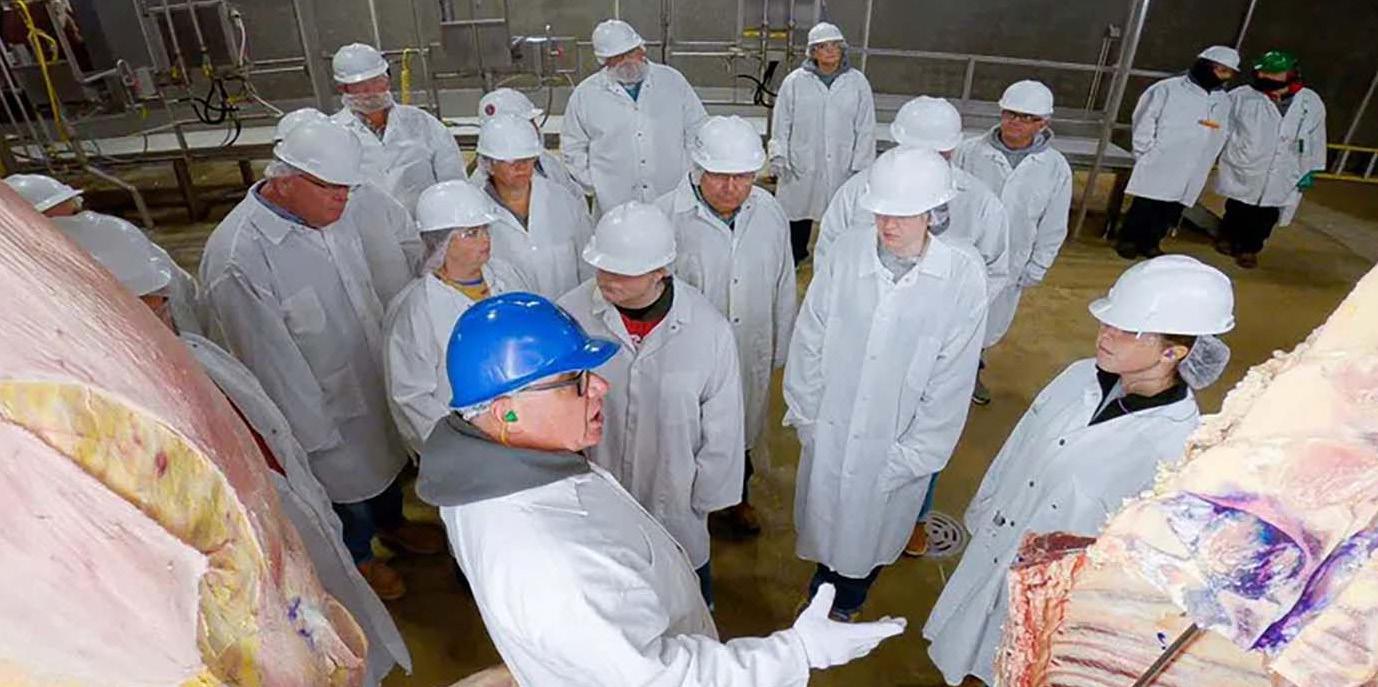
Secretary Vilsack announced the new pilot during a panelist discussion with livestock producers and independent meat processing business owners in conjunction with the recent National Western Stock Show in Denver, Colo. In addition to the pilot, Secretary Vilsack highlighted USDA programs in the West that create economic prosperity for farms, ranches and rural communities by supporting on-farm conservation, bolstering new markets, creating jobs, and keeping farming and ranching viable for the next generation.

This announcement builds on USDA’s comprehensive approach to increase competition in agricultural markets, create a fairer playing field for small- and midsize farmers and ranchers, and provide producers more options to market their products.
“On average, a beef carcass that grades as USDA Prime is valued at hundreds of dollars more than an ungraded carcass, but costs for this voluntary USDA service often prevents smaller scale processors and the farmers and ranchers they serve from using this valuable marketing tool,” Secretary Vilsack said. “This remote grading pilot opens the door for additional packers and processors to receive grading and certification services allowing them to access new, better, and more diverse marketing opportunities.”
12 MEATBUSINESSPRO February 2024 meatbusinesspro.com

NSF INTERNATIONAL FOCUSES ON CANADIAN FOOD INDUSTRY WITH NEW WEBSITE FOR SERVICES IN CANADA
The pilot will build on lessons-learned during AMS’ feasibility study of a “remote grading” process conducted during the second half of 2023. AMS will expand its testing by engaging a larger and more diverse number of beef packers to participate in the development of this procedure. Through the pilot, AMS will gather additional information on actual cost and the level of in-person surveillance needed to ensure program consistency and integrity to formalize this innovative service option as part of the USDA Quality Grading Service.
Global public health organization showcases services for Canada’s growing and fast-changing
The Remote Grading Pilot for Beef is limited to domestic beef slaughter facilities operating under federal inspection and producing product that meets the eligibility criteria for the USDA grading program.
accredited International Association for Continuing Education and Training (IACET) site. Topics include HACCP, food safety and quality, GFSI benchmarked standards, regulations (including FSMA), food science, food packaging,
Consumers as well as buyers and sellers of beef rely on USDA quality grades, including Prime, Choice, and Select, as a clear and standardized way to indicate quality. Everyone involved in the beef supply chain, from cattle producers to beef consumers, benefit from the greater efficiency permitted by the application of official U.S. grade standards.
Evolving regulations across countries and increasing complexities associated with a globalized food supply network present challenges for NSF International clients in Canada and around the world. The new Canadian website offers expertise and services to help companies navigate these challenges, including certification and auditing, consulting, technical services, training and education, food and label compliance, packaging, and product and process development.

drinking water programs. Visit the new Canadian website at www.nsfcanada.ca to review the food safety services capabilities video, find a list of Canadian food experts, learn about upcoming events and global news releases, submit a question or read an FAQ.
NSF International’s Canadian website provides information on the following services:
Certification & auditing: Third-party food safety audits and certifications, which are integral components of supplier selection and regulatory compliance. Accurate audits are the first step toward successful verification of a company’s food safety system, providing improved brand protection and customer confidence. Certifications and audits are available for animal and produce in the agriculture industry, GFSI certification and management system registration.
USDA offers these services to packers and processors on a user-fee basis. While over 90% of America’s fed beef supply is officially graded by USDA, most users are large beef packing operations. USDA’s meat grading and certification services are significantly underutilized by small, independent processors, in large part due to the expense of paying for a highly trained USDA grader to travel to their facility to perform service in-person for a relatively small number of cattle that may not require a full day of the graders’ work. Experience with remote grading so far has shown it dramatically reduces travel-related expenses, which makes the service more accessible to smaller processors.
Consulting: A full-service team approach providing technical resources, expertise and insight for a wide range of food safety and quality services. NSF International provides finished product inspection testing for food, packaging and non-food testing for rapid analysis and insight to protect the brand, technical support services from on-site temporary or permanent technical staffing placements, and various types of consulting.
In this pilot, trained plant employees capture specific images of the live animal and beef carcass. These images are submitted electronically to a USDA grader already stationed elsewhere in the U.S., likely located in another rural community, who reviews the images and accompanying plant records and product data, assigns the USDA Quality Grade and applicable carcass certification programs, and communicates the official grade back to the plant to be applied to the carcass. Plants can then use this information in their retail marketing and transmit carcass performance information back to producers.
Technical services: A one-stop solution for food product compliance and formulation, from concept to finished product, including food and label compliance, packaging, product and process development, and shelf-life and product evaluation.
Training and education: Training for the global food and beverage industry across the supply chain as an








https://www.yesgroup.ca



13 meatbusinesspro.com February 2024 MEATBUSINESSPRO
September/October 2017 CANADIAN MEAT BUSINESS 23 meatbusiness.ca YesGroup_CanadianMeatBusiness-Qtr-pg.pdf 1 2014-05-16 1:20:17 PM
International Canadian office with access to NSF International’s global services dedicated to food safety and quality.

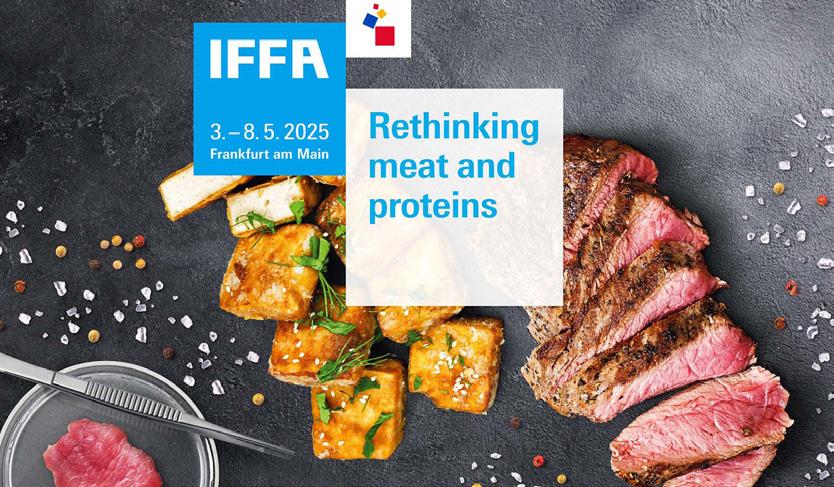
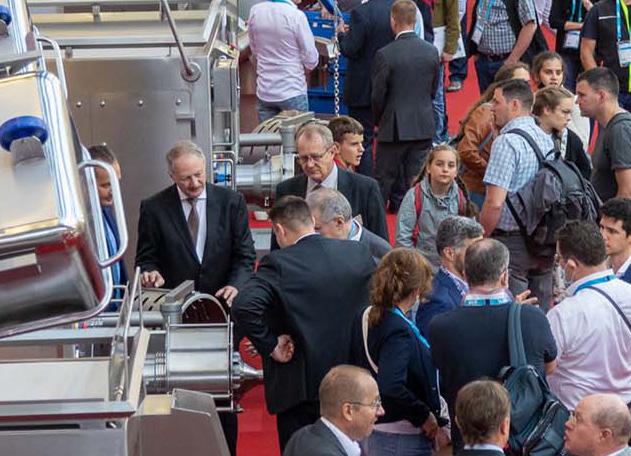
KICK-OFF FOR IFFA 2025: RETHINKING MEAT AND PROTEINS
Under the motto “Rethinking Meat and Proteins”, IFFA 2025 will be launched with many innovations and an optimised exhibition concept.
For the first time, there will be a dedicated “New Proteins” product area. Exhibitors can now register to take part in the leading industry event for the meat and protein sector.
The international meat and protein industry will once again meet at IFFA – Technology for Meat and Alternative Proteins – from May 3-8, 2025 in Frankfurt am Main. The starting signal for the leading international trade fair has now been given, as exhibitors can register with immediate effect. Companies that declare their participation by April 17, 2024 will benefit from a reduced early bird rate.
The IFFA concept has been overhauled and refined to be fit for the future. Johannes Schmid-Wiedersheim, Director of IFFA, explains: “Over the past few months, we have developed many new ideas together with our industry partners. The most important key points relate to an adapted exhibition concept and a separate exhibition area for the topic of New Proteins. The motto of IFFA 2025 is “Rethinking Meat and Proteins” and that is exactly the vision – to work together to make food production smarter and more sustainable.”
UPDATE ON THE HALL LAYOUT
With a new hall layout, IFFA is expanding its product range and linking the processing stages even more closely together. The halls will be divided into five main areas:
• Processing
• Packaging
• Selling and craftsmanship
• Ingredients
• Alternative proteins from plants or cell cultures
The heart of IFFA, the production and processing products and automation sectors will be centralised for the first time in Hall 12.1.
A new area, New Proteins, is being set up in Hall 11.0. In addition to suppliers of the respective ingredients, machines and systems for protein extraction, texturization and fermentation as well as for the production of cultivated meat can be seen here. The exhibition program will be complemented by relevant institutions from the world of research, start-ups, associations and experts who will provide an insight into the status quo on the topic of new proteins. One hall level above, in Hall 11.1, suppliers of ingredients, spices, additives and casings will present their innovations.
The world of proteins is developing rapidly, and new products are emerging alongside the classic meat. Messe Frankfurt wants to express this diversity with the new key visual for IFFA 2025. The motif revolves around the topics of meat indulgence, alternative proteins, innovative ingredients, research and science.
As the leading international trade fair, IFFA brings the global meat and protein industry together in Frankfurt am Main every three years and offers decisionmakers from the industry, trade and craft sectors a unique platform. The focus is on the trending topics of automation and digitalisation as well as solutions for increasing energy efficiency and resource-saving production. In the butchery trade, the focus is on quality, local produce, sustainability and animal welfare. New customer groups are to be attracted with innovative concepts at the point of sale.
For more information, visit https://iffa.messefrankfurt.com/ frankfurt/en.html

14 MEATBUSINESSPRO February 2024 meatbusinesspro.com

https://www.beaconmetals.com


GOVERNMENTS HELPING FOOD PROCESSORS BOOST EFFICIENCY
The governments of Canada and Ontario are investing more than $13 million through the Sustainable Canadian Agricultural Partnership (Sustainable CAP) to help free-standing meat processors and abattoirs in the province make upgrades to increase their productivity and efficiency and maintain Ontario's high food safety standards.
This cost-shared funding, provided through the Sustainable CAP, is supporting 151 projects that focus on upgrading meat handling and processing equipment, technologies and practices that improve production capacity and enhance the competitiveness of Ontario's meat processing plants and abattoirs.
"There is a growing demand for the high-quality products we produce and process across Canada,” stated Lawrence MacAulay, Minister of Agriculture and Agri-Food. ”This funding through Sustainable CAP will help the meat processing industry in Ontario access new technologies and equipment to increase production and meet that demand."


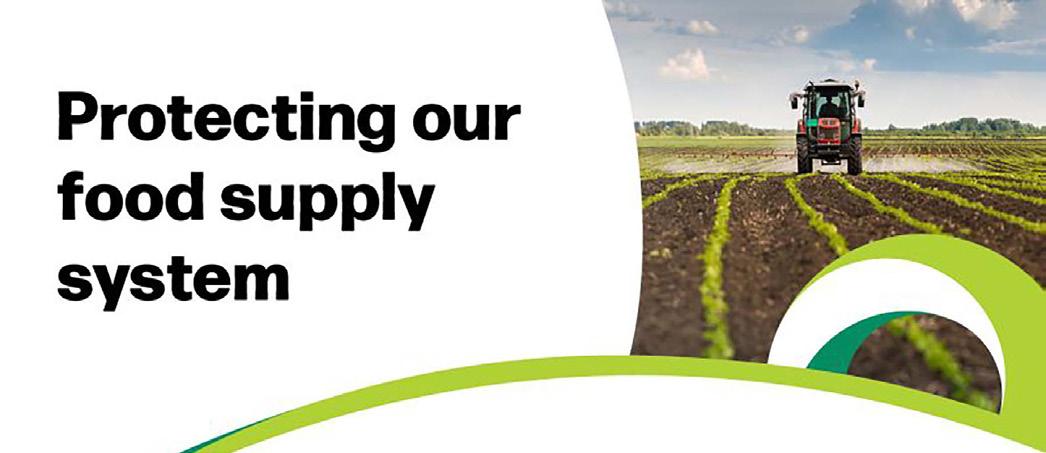
Examples of investments made through the Meat Processors Capacity Improvement Initiative include:
• Up to $140,112 to Penokean Hills Farms in Bruce Mines to purchase and install a chop cutter and thermoforming packaging machine to increase production.
• Up to $150,000 to Sikorski Sausages in London to purchase and install a floor standing clipper, air compressor and refrigerated air dryer, a split chiller system, racking systems, high-capacity coils for variable speed fans, and evaporator fan coils to increase capacity and labour productivity.
• Up to $19,461.60 to Townsend Butchers in Simcoe to purchase and install a new vacuum sealing machine to increase productivity and meet market demand.
16 MEATBUSINESSPRO February 2024 meatbusinesspro.com


This funding builds on previous investments of over $14 million in the Meat Processors Capacity Improvement Initiative funded through the Canadian Agricultural Partnership (CAP) since 2020.
Sustainable CAP is a 5-year (2023-2028), $3.5-billion investment by federal, provincial and territorial governments to strengthen competitiveness, innovation, and resiliency of the agriculture, agri-food and agri-based products sector. This includes $1 billion in federal programs and activities and a $2.5 billion commitment that is cost-shared 60% federally and 40% provincially/territorially for programs designed and delivered by the provinces and territories.
QUICK FACTS
NEW SURREY SLAUGHTERHOUSE ‘WOULD OPEN DOOR’ TO NEW BEEF MARKETS
Proposed 30,000-square-foot
By Amy Reid, Peace Arch News
The Meat Processors Capacity Improvement Initiative also covers training and engineering costs associated with completing the projects. Applications opened on August 31, 2023, and closed on September 25, 2023. All projects are expected to be completed with equipment delivered by March 1, 2024.
A federally licensed beef processing facility is in the works in Surrey, BC.
“There’s a new building coming forward, a new abattoir, I think that’s the French pronunciation of slaughterhouse,” said Councillor Mike Starchuk. “So Surrey will have a newer facility with a better capacity so people will have the ability to not have to ship an animal to Alberta to have it processed. The applications have gone through the Agricultural and Food Sustainability Advisory Committee.”
"The Meat Processors Capacity Improvement Initiative is a prime example of how our government is making the right investments in the right places. By supporting meat processors who are working to improve efficiencies and increase capacity, we're ensuring that Ontario's meat processing sector can compete globally and opening doors to new opportunities,” said Lisa Thompson, Ontario Minister of Agriculture, Food and Rural Affairs.
The facility is proposed on a 25-acre property within the Agricultural Land Reserve at 5175 184th St. The planned 30,000-square foot abattoir in Cloverdale would process up to 100 head of cattle per day.
According to a city report, that would make it larger than any other processing facility in B.C.. But it would still be small by industry standards, compared to the largest meat processing plants in Alberta that process 3,000 heads of cattle per day.
The proposed facility would be fully enclosed and designed
• There are approximately 480 provincially licensed and 239 federally licensed abattoirs and free-standing meat plants in Ontario.
so as to not emit odours. And while there is an operational 6,000-square-foot abattoir on the property now, it’s can only process a limited number of cattle.
• Sustainable CAP will help enable the goals outlined in Ontario's Grow Ontario Strategy, which include increasing the production of food by 30% over 10 years, and growing agriculture and food exports by 8% annually.
Chris Les is general manager of Meadow Valley Meats, the company behind the project. Meadow Valley Meats is seeking a Canadian Food Inspection Agency license for the proposed abattoir, to become a federally registered meat establishment and expand the operation. This would allow the meat products to be transported beyond B.C.’s boundaries.
• Enhancing sustainability and innovation in Canada's agriculture and food industry were among priorities set for Sustainable CAP by the federal-provincial-territorial agricultural ministers in The Guelph Statement.
“Our focus is on trying to bring a more efficient, sustainable local product to the market, realizing we can do that now in a very limited sense,” said Les. “I caution people when talking to them and they say, ‘What a big plant, that’s going


https://www.tcextrade.com
17 meatbusinesspro.com February 2024 MEATBUSINESSPRO
but it’ll be a big upgrade from the site currently.”
beef abattoir in Cloverdale
be B.C.’s largest such facility
would
Continued on page 32

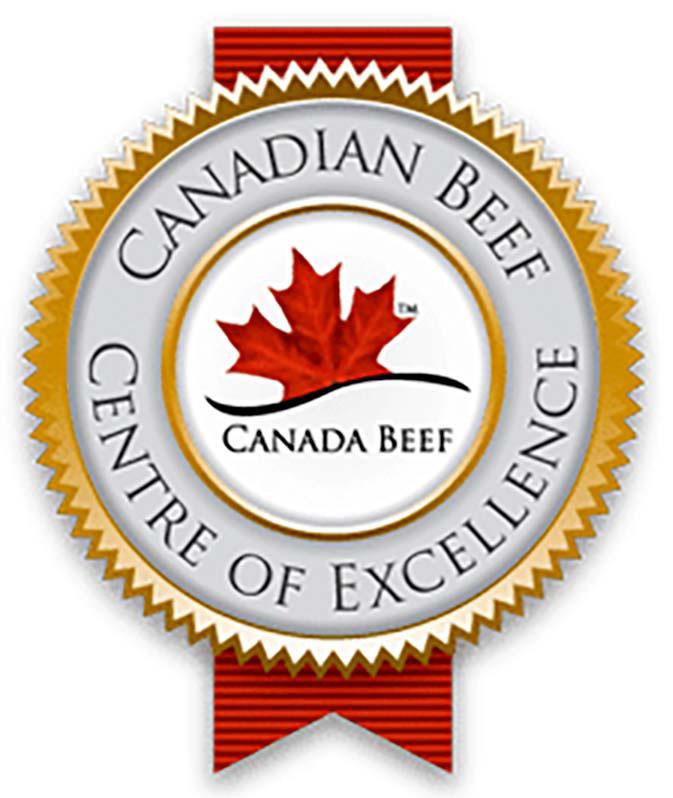

CANADIAN BEEF PRODUCERS STAND BEHIND NEGOTIATORS AT BILATERAL NEGOTIATIONS
The Canadian Cattle Association (CCA) recently issued the following statement noting their disappointment by the decision of the United Kingdom (UK) to pause the bilateral free trade negotiations between the UK and Canada.
Canadian cattle producers stand behind the Government of Canada’s approach of drawing a hard line in the negotiations and defending Canadian beef producers.
“CCA has been following the bilateral negotiations closely and has been concerned at the lack of ambition and cooperation from the UK in these negotiations”, said Nathan Phinney, CCA President. “The Canadian beef industry is a strong advocate of free and open trade. To avoid getting a bad trade deal for Canadians, we need trade partners that want to trade fairly and not use rules and regulations to their own advantage.”
The Canadian beef industry will continue to oppose the accession of the UK to the Comprehensive and Progressive Transpacific Partnership (CPTPP) until the fundamental obstacles to export Canadian beef to the UK are fully addressed. Unfortunately, the UK has shown no indication that it is prepared to fully accept Canada’s food safety system which is widely recognized as one of the finest in the world.


Until the UK barriers to Canadian beef are resolved, Canadian producers will continue to be at a disadvantage. The UK currently has unlimited access for British beef exports to Canada while Canadian beef producers are unable to export into the UK market. International trade is made up of compromise and negotiations. Addressing these trade barriers will create a win-win situation for both industries and consumers across both markets. We encourage the UK to return to the negotiating table with fair and genuine efforts to solve our beef access issues.
Since the UK has not shown willingness to resolve this market access issue, it is in Canada’s best interest to focus our efforts at different trade negotiations. Canadian beef producers would also encourage the Government of Canada to re-examine the UK’s current beef access to Canada in both the Trade Continuity Agreement (TCA) and the CPTPP to ensure fairness and equitable access.
For more information, visit https://www.cattle.ca/
18 MEATBUSINESSPRO February 2024 meatbusinesspro.com

https://www.cfib.ca

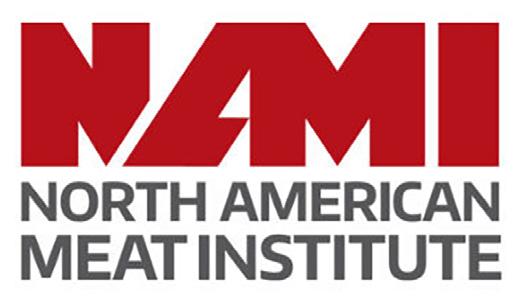

CMC, COMECARNE AND MEAT INSTITUTE SIGN JOINT STATEMENT
To deepen meat industry coordination and government collaboration in Canada, Mexico and the United States, the Canadian Meat Council (CMC), Consejo Mexicano de la Carne (COMECARNE), and the Meat Institute signed a Memorandum of Understanding (MOU) that formalizes the three associations’ ongoing work to improve trade, reduce regulatory barriers and enhance information exchange within North America.
The organizations also finalized a Joint Statement of Coordination that emphasizes their collective commitment to addressing foreign animal diseases, sustainability and non-tariff trade barriers.
The MOU and Joint Statement were shared during COMECARNE’s Annual Convention in Playa del Carmen, Mexico. CMC, COMECARNE and the Meat Institute convened a trilateral meeting during the Convention, during which they discussed ways to begin taking action on the areas agreed to in the Joint Statement of Coordination. The information in the documents was also sent to government officials handling agriculture and trade in Canada, Mexico and the U.S., and all three organizations intend to promote greater public-private collaboration moving forward.
The three organizations said in the document, “Because of the interconnected, complementary nature of the North American meat industry, and the attendant economic interdependence it has forged, each of our organizations commits, with renewed vigor, to deepening our already robust partnership on the foregoing issues, and on other concerns not reflected in this document. More frequent, formal exchanges among our organizations and between industry and government will benefit the communities and workers we serve, will augment regional and global
food security, and will mitigate regulatory and legal barriers that undermine our industries’ integration. Our collective advocacy for science- and risk-based trade and our joint efforts to align sustainability messaging and actions will secure the North American meat industry’s position as the global leader in innovative, efficient, trade-facilitative practices and standards. Moreover, our commitment to producing the safest, most affordable, most abundant meat supply globally will underpin every collaborative endeavor we undertake.”
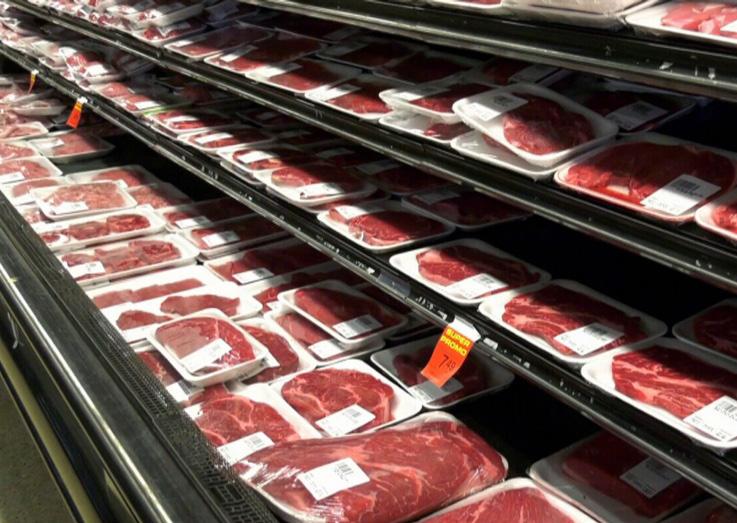
THE GROUPS COMMIT TO DEEPENING COORDINATION WITH THE GOVERNMENTS IN THREE KEY AREAS BY:
• Foreign Animal Disease, specifically African Swine Fever (ASF): committing to sharing information about industry mitigation and traceability efforts, participating in joint ASF preparedness exercises, and working closely with respective governments to promote continuity of live swine and pork and pork products trade, in line with international standards, if an ASF outbreak occurs in North America.
20 MEATBUSINESSPRO February 2024 meatbusinesspro.com

involved in the TESA program.
DF: Yes, I think we were the first farm east of Ontario as far as I understand. I’m not sure why the eastern associations wouldn’t have previously nominated anybody because there are many farms here on PEI doing every bit as much as we are as to attain a high level of sustainability. Anyway, we were very surprised when the PEI Cattleman’s Association nominated our farm.
CMB: And then you were attending the Canadian Beef conference in Calgary and you won.
• Sustainability (social, economic, and environmental): committing to cooperate to advance voluntary, evidenced-based, trade-facilitating agricultural sustainability programs, including industry-wide frameworks like the Protein PACT and CRSB’s National Beef Sustainability Assessment and Strategy. And seeking to identify areas for greater collaboration and alignment among meat industry sustainability initiatives across North America and agricultural sustainability regulations and policies adopted and championed by the governments of Canada, Mexico, and the United States, both domestically and in global fora.
DF: Yeah! That was a very nice moment for us. But I don’t like to use the word win actually. However, being recognized for our commitment was a real honour. If you want to know the truth, it was a pretty humbling experience. As I said to CBC when they phoned me after the conference, I was just floored, really couldn’t believe it.
CMB: So now that you have been recognized, do you think that will draw more attention and garner more nominations out of Atlantic Canada going forward?
• Technical or other barriers to trade: by promoting streamlined regulatory processes that deliver products to customers and consumers in the fastest, freshest, and safest possible state. This includes exchanging information about and devising coordinated responses to potentially trade-restrictive regulations and laws. Examples include, but are not limited to, onerous packaging and labeling policies, burdensome regulations that would result in live animal and product segregation, and protectionist, unfounded measures that are not grounded in risk- or sciencebased principles resulting in less efficient meat production and processing practices. Enhanced industry coordination to promote trade and business continuity will be matched with efforts to streamline trade, reduce existing and emerging hindrances, and dissuade governmental retaliation that will only undermine the industry’s integration.
CMC, COMECARNE and the Meat Institute plan to meet this summer to reevaluate priorities and discuss progress on existing joint efforts.
DF: Absolutely. We’ve gotten a lot of good press highlighting the island cattle industry. I’m positive you’ll see more farms in our neck of the woods nominated next year. And I have to give the Canadian Cattleman’s Association recognition for choosing a farm from Prince Edward Island. We are small players in the national beef industry and I think it was a real credit to their organization to recognize us. They treated all the nominees royally and it was a real class act. It was a wonderful experience. https://www.yesgroiup.ca

21 meatbusinesspro.com February 2024 MEATBUSINESSPRO
September/October 2017 CANADIAN MEAT BUSINESS 17
meatbusiness.ca
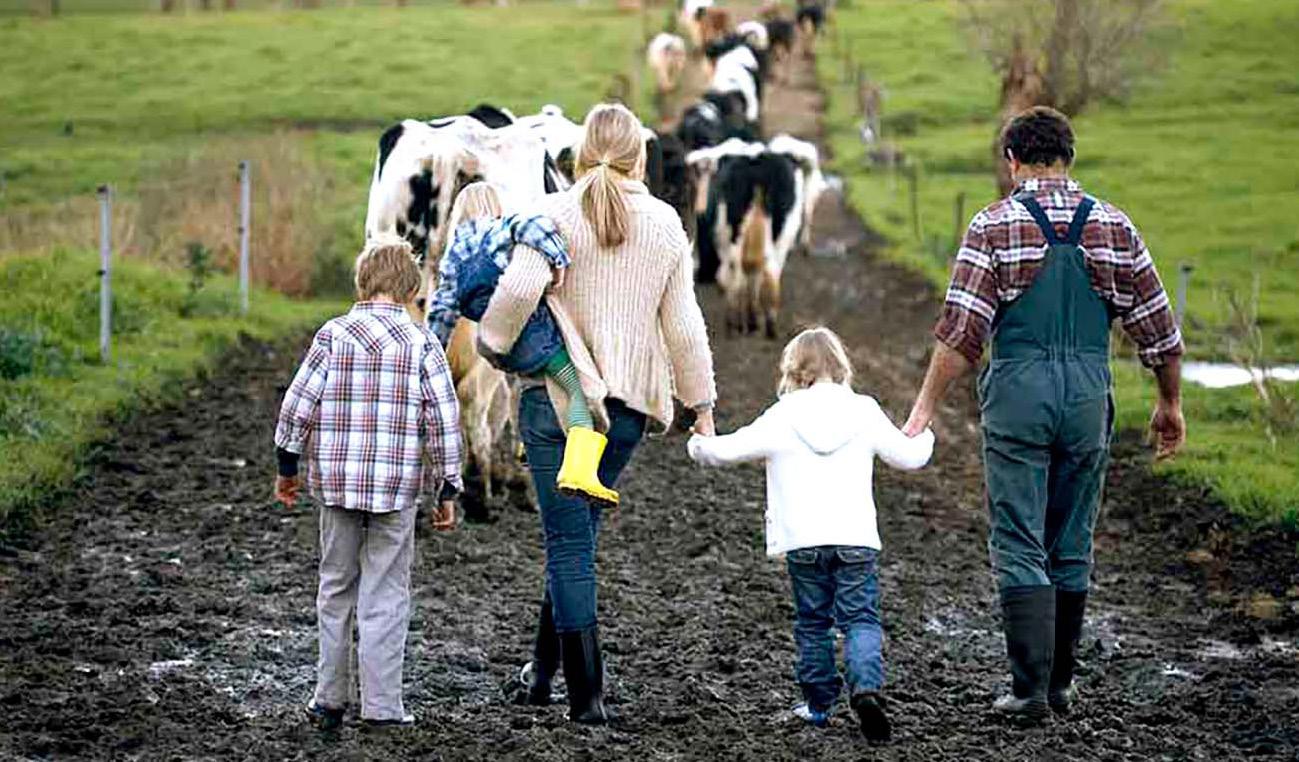


NURTURING MENTAL HEALTH IN AGRICULTURE
MENTAL HEALTH CHALLENGES AND RESOURCES IN THE AGRICULTURE INDUSTRY
For several years, the topic of mental health within the agricultural sector has emerged as a pressing concern in the community. In our last month’s column, we referred to a study revealing alarming statistics: 57% of individuals in the agriculture industry met the criteria for anxiety, and 34% for depression, which echoes the very high suicide rate in this industry. Additionally, the Canadian Federation of Independent Business’ Business Barometer® painted a concerning picture, where in 2023, the agriculture sector consistently displayed the lowest levels of optimism both in short and long-term. While agriculture inherently involves uncertainty and risk, these numbers are alarming.

The CFIB has done its best to shed light to this very important matter, notably through its report, Near the Breaking Point: Mental Health in Small Business. The report highlighted that, in the aftermath of two stressful years, heavily induced by the challenges of COVID-19, in 2022, a staggering 55% of small business owners in the agriculture sector found themselves teetering on the edge of burnout.

Compounding this issue, farmers may grapple with exhaustion due to extended working hours exacerbated by labour shortages. In fact, a striking 82% of small business owners in the agriculture sector have been forced to extend their working hours, with farmers now averaging an intense 58 hours a week - far surpassing the typical 35-hour workweek. It is no wonder that many farmers find it hard to strike a healthy work-life balance or find themselves overwhelmed by stress.

22 MEATBUSINESSPRO February 2024 meatbusinesspro.com

Although stress itself is not classified as a mental illness such as anxiety or depression, prolonged exposure to stressors heightens the likelihood of developing mental health conditions. As it happens, farmers are twice as stressed as the general population.
So where can Canada’s producers turn to when it comes to taking care of mental health?
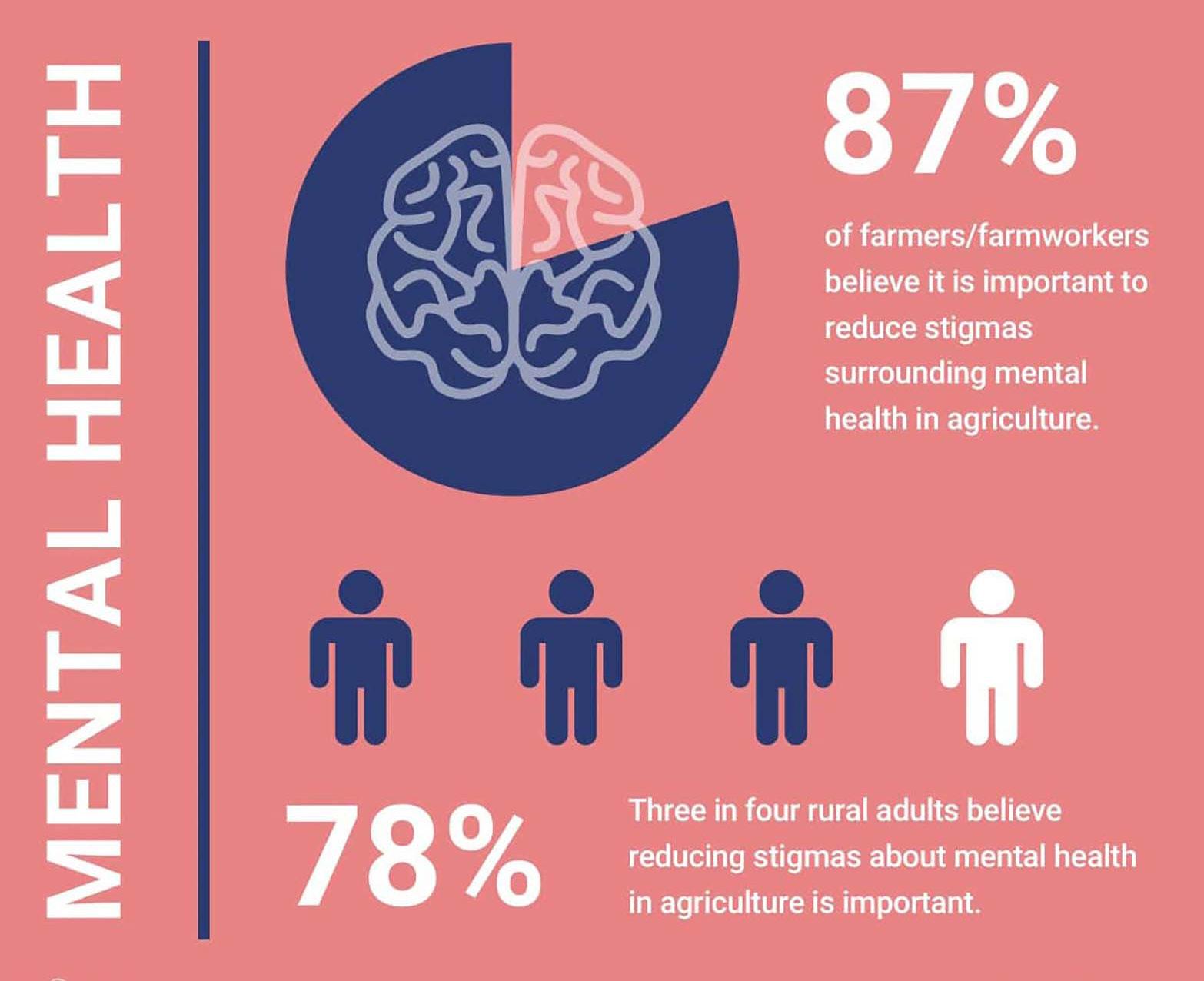
The CFIB Wellness Hub provides useful tips and practical advice on how to introduce and promote wellness in the workplace. The Business Development Bank of Canada (BDC) also offers a comprehensive library of resources focusing on mental health, while the Government of Canada collaborates with provincial and territorial governments to provide agriculture-specific resources and initiatives.
Some of these resources may also be useful for employees or Canadians more broadly. Ultimately, governments have a role to play in ensuring that adequate mental health supports are available and accessible to all types of business owners, their employees, and Canadians.
Good mental health enhances professional and personal life, and farmers are no exception.


Juliette Nicolaÿ is a Bilingual Policy Analyst for the Canadian Federation of Independent Business (CFIB). CFIB is Canada’s largest association of small and medium-sized businesses with 97,000 members (4,500 agri-business members) across every industry and region. CFIB is dedicated to increasing business owners’ chances of success by driving policy change at all levels of government, providing expert advice and tools, and negotiating exclusive savings. Learn more at cfib.ca.
23 meatbusinesspro.com February 2024 MEATBUSINESSPRO





201
Remco products are colour-coded to help divide the production cycle into different zones. By identifying these zones as different cleaning areas, the movement of bacteria around the production area can be blocked.
Our products were developed with the Hazard Analysis Critical Control Point (HACCP) in mind.
No matter what colour-coding plan is implemented, Remco Products from The Yes Group provides significant added value at no additional cost. From scoops to squeegees, from brushes to shovels, we have the products and the colours to enhance any professional quality assurance program.
24 MEATBUSINESSPRO February 2024 meatbusinesspro.com meatbusinesspro.com 31 September/October 2018
Customers
Don Park Road Unit 1, Markham, Ontario, L3R 1C2 Phone: 905-470-1135 1-800-465-3536 Fax: 905-470-8417 Website: www.yesgroup.ca email: sales@yesgroup.ca Remco and The Yes Group Protecting your
https://www.yesgroup.ca


























































































